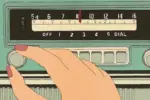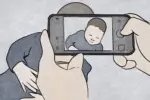This past Thursday, a YouTube content creator who goes by Arab Andy was arrested for faking a bomb threat on the campus of the University of Washington as a prank for his YouTube video. His profile, which has a little less than 8,000 followers, has a description that reads “I am an IRL streamer willing to do anything for some good content.” He is currently being held on a $75,000 bail.
Just about a week prior, a similar incident occurred on the other end of the country. A 22-year-old named Dillon Burch was arrested in the Contemporary Resort of Walt Disney World for drunkenly telling guests at the resort that there was an active shooter on the premises, causing the resort to go on lockdown and resulting in Burch’s arrest.
He claimed that he was planning on filming the reactions for his YouTube channel as part of a “social experiment.”
There are countless stories like this one. Infamous YouTube star Logan Paul sparked an outrage on the internet this January when he posted a video featuring him mocking the corpse of a man who had recently committed suicide.
Last year, Mike and Heather Martin lost custody of their five children after posting many videos of the pranks played on their children including screaming profanities at them and pushing, punching and slapping them.
Not to mention, the recent shooting at YouTube’s headquarters, perpetrated by a woman who believed YouTube had demonetized her videos.
YouTube’s business has surely boomed over the past 13 years: Since their founding in 2005, YouTube has racked up over 1 billion active users per month. Not only has it become a business staple, it has become a cultural staple, too.
Many of us have a sort of shared history through YouTube’s videos; who doesn’t remember “Charlie Bit My Finger?”
https://www.youtube.com/watch?v=_OBlgSz8sSM
Or the many videos that gained popularity seemingly at light speed, like “Gangnam Style” or “Hide Your Kids Hide Your Wife?” It’s undeniable: YouTube has reached the status of the internet giant.
There are many videos on YouTube that I truly believe have brought a lot of light into the world. However, like everything else, it is a double-edged sword.
It is certainly a platform for people to make their most inappropriate, bigoted and hateful ideas known. It was a key player in the Russia hack of the 2016 election and the site hosts a lot of extremely questionable and potentially unethical content on it, especially aimed at children.
These things are issues, but ultimately, they are avoidable if you watch reliable channels and report any strange or suspicious content.
There are many more complications when things are taken out of the internet and into the real world. Arab Andy and the other YouTube users like him didn’t do these things for no reason — they did them because the public finds it entertaining.
Unfortunately, the public is only able to find things on the internet entertaining when it is not happening to them. One incident is exactly that: just an incident. A second incident is a copycat. But when you look at the reality of it — which is not three, or four, but probably hundred and potentially thousands — it’s a problem.
The sensationalist obsession of harmful YouTube prank videos is not only indicative of online culture but also holds up a mirror to society’s own interest in entertainment derived from other people’s fears.

















